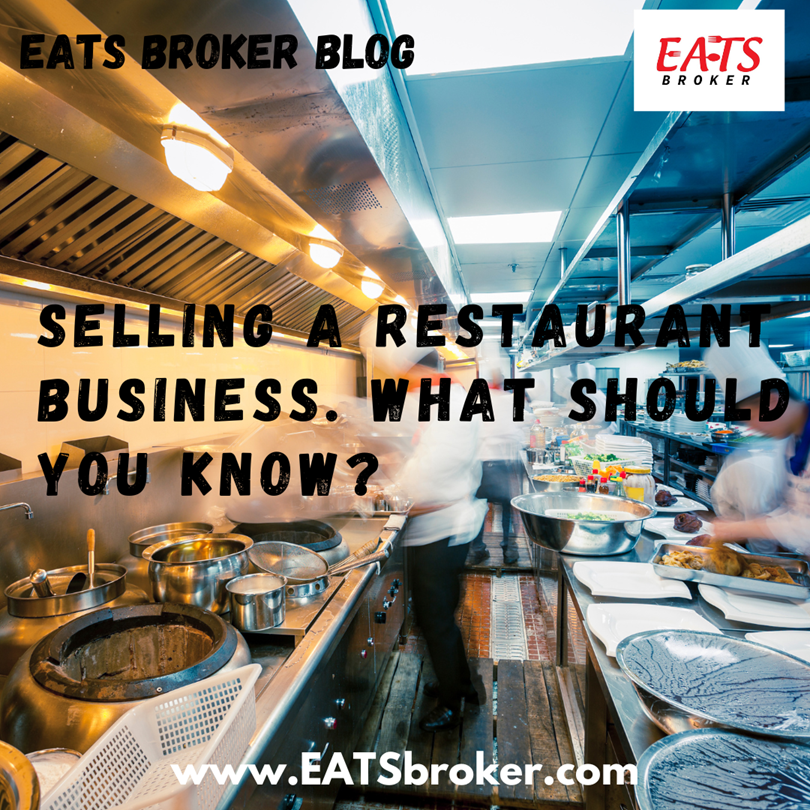What are the steps to the closing table when selling a restaurant business? Each restaurant resale transaction is different because the terms and participating professionals change. Selling a non-franchise restaurant is a different sales process than selling a franchise restaurant.
Selling a restaurant with SBA lending involves many more steps than closing a cash deal or owner financing deal. When sellers contact the Restaurant Broker at EATS Broker, most need to be more knowledgeable about selling a restaurant.
Here’s a general outline of steps for selling a restaurant business:
1. Restaurant Health Assessment: At this phase, restaurant owners should be mentally ready to sell a restaurant. Owners should evaluate the restaurant’s financial health, appearance, market position, and growth opportunities. Any outstanding issues, such as equipment maintenance or health code violations, should be addressed during this stage.
2. Restaurant Financials and Documents: Restaurant owners should ensure that all books and records are updated and accurate. Documents should also be available for sharing with qualified potential buyers.
Restaurant buyers could ask for the following financials during the sales process:
-Tax Returns
-Profit and Loss Statements
-Sales Tax Filings
-POS Sales Reports
-Bank Statements
-Credit Card Statements
3. Restaurant Valuation: 80% of business owners don’t know the value of their business. Getting a professional restaurant valuation gives sellers going to the market an advantage. The national average is only about 30%-40% of restaurants listed for Sale will be resold to a buyer.
Restaurant Broker tip: The listing price is the number one reason restaurants do not sell!
4. Restaurant Sales Marketing: Once the listing is ready to go live on the buyer market, it’s time to sell. Listings should be written to interest buyers so they can inquire about more information. Buyers will inquire about listing and be required to sign a non-disclosure agreement. Once this step is completed, buyers expect a marketing package. The Confidential Information Memorandum usually includes the following information:
Financials
Equipment List
Lease Terms
5. Restaurant Negotiation phase: Negotiate the terms of the Sale, including the purchase price, payment structure, closing cost structure, transition period, and any contingencies. For Sale by Owner listing are restaurant owners that don’t have a Restaurant Broker representing them in a transaction. Most times, these types of sellers will forget to negotiate the following costs:
-Rent Prorations
-Cash in the drawer or safe at the restaurant
-Inventory cost outside of purchase price
-Closing cost
-Lease Assignment Fee
-Franchise Transfer Fee
Dallas Restaurant Broker Dominique Maddox says, “Structuring the deal correctly is a very important step because it sets expectations for the Restaurant Seller and Restaurant Buyer. During this step, it’s highly recommended to get professional assistance from someone who has experience negotiating Restaurants for Sale.”
6. Due Diligence Period: This is the make-or-break phase of the deal. Restaurant buyers will review your financial records, inspect the premises, and assess the business’s overall condition. Buyers want to confirm all the information they received and try to uncover anything that was not disclosed.
Gather all necessary documents, including financial records, leases, permits, licenses, and contracts. Organizing everything will streamline potential buyers’ due diligence process.
Restaurant Business Broker tip: Buyers will have the freedom to terminate a contract within the due diligence period for any reason:
7. Closing: Once both parties have agreed to the terms and completed due diligence, finalize the Sale by signing the necessary legal documents and transferring ownership.
Restaurant sellers will assist the new owner with the transition process, which may involve training staff, transferring supplier relationships, and ensuring a smooth handover of operations.
Restaurant Real Estate Brokers tip: It’s also a good idea to seek professional advice from a lawyer, accountant, or restaurant broker to guide you through the selling a restaurant business process and ensure that all legal and financial aspects are handled correctly.
For more information on the restaurant market and other available consulting services or a complimentary restaurant valuation, contact Restaurant Business Broker Dominique Maddox at 404-993-4448 or email at [email protected]. Visit our website at www.EATSbroker.com


